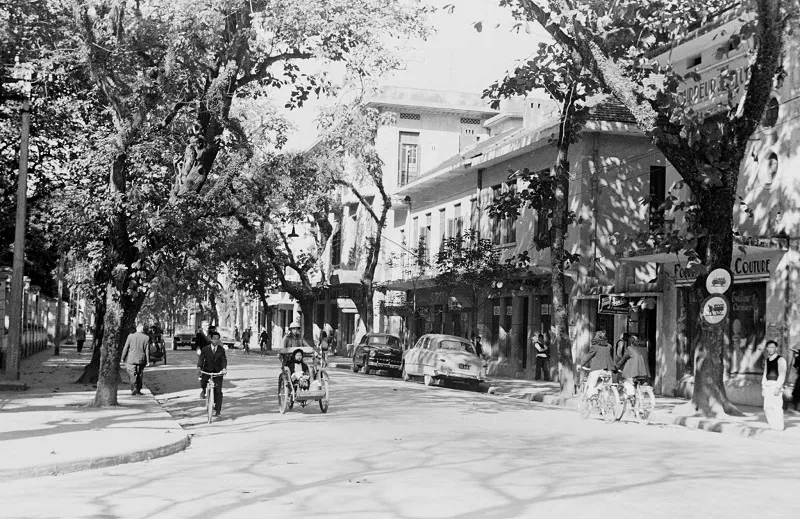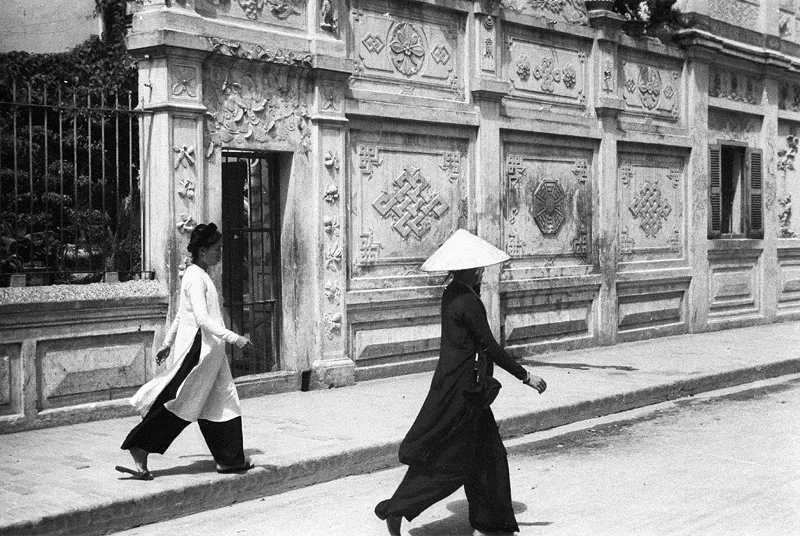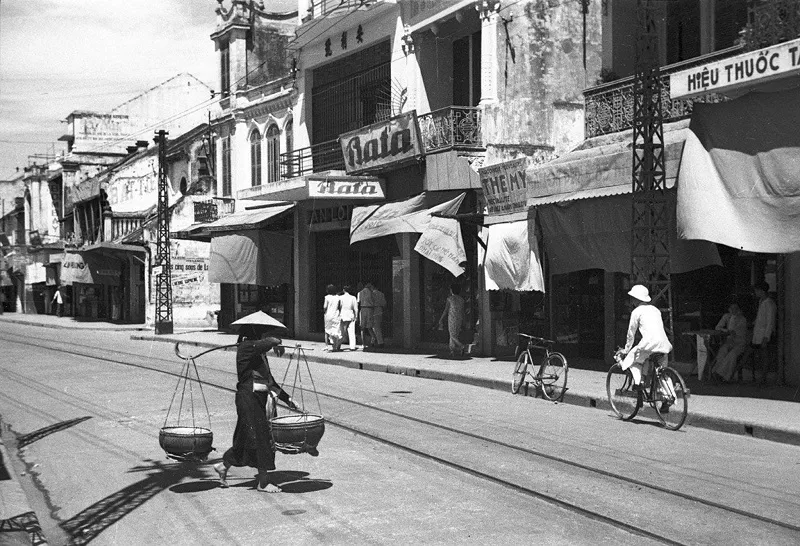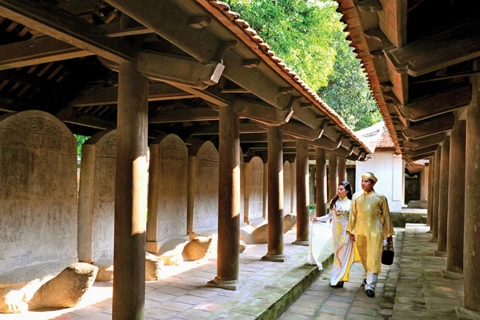Who are the urban citizens in the cultural flow of Hanoi?
The urban citizens are dynamic people who are always eager to try new things and dissatisfied with the routine. Being demanding shapes a new way of thinking. But not everyone living in Hanoi is called an urban citizen.
1. First of all, it must be said this is not research but still requires careful study to come to for a precise affirmation. About urban people and urban culture, it is necessary to mention about the movement and change in the historical and cultural flow of Hanoi.
| Trang Thi street in 1950s/ Photo collector: Nguyen Van Son |
The first question is what defines urban citizens? Besides living in urban areas, as the literal meaning of the word.
But, the word does not mean that everyone living in urban areas are urban citizens and have the characteristics of the urban culture either. Urban citizens are just a group of people with many similarities in work, career, tradition, family structure, and codes of conduct that have become "house rules", their most common characteristics. Thus, there are many people living in urban areas but do not participate in or contribute anything to the urban civic tradition and characteristics because they are not the true owners of that tradition.
For a long time, it is said that culture belongs to the people and created by the people, but it does not fully and thoroughly say what belongs to the people as a tradition and a value for an asset for the next generation. Not everyone but only the most elite parts of the people are those who create it.
That does not mention either that the urban citizen and urban culture in the early stage are different from those in the later stage, when that it becomes a modern city and the convergence of many different types of residents as at the moment. The urban citizen of the early stage is formed from peasantry with rural culture turning into urban citizens but they do not have enough foundation to create the urban culture. Therefore, their culture is actually mixed in which the traditional culture is weak or even strange to them. They are urban residents, but on the one hand, they still feature the rural culture which is not fully suitable with urban culture which is new to them.
Citizens in these new urban areas become people living in the urban areas, not because of their own professional needs, but their property. They literally just live here after work and have little relations in the area. The community cohesion here is very low and mixed, because it does not come from a history or tradition in the past.
| Hanoi ladies in 1950s/ Photo collector: Nguyen Van Son |
2. The emergence of the urban citizen is alongside the formation period of cities and urban life, that urban people do not live on agriculture but mainly non-agriculture and trade. Not everyone working in these professions is urban citizens, but most of them have formed a new population class with a new way of living due to the characteristics of work and relations which has formed their personality and urban culture.
Basically, the urban citizens are dynamic people who are always eager to try new things and dissatisfied with the routine. Being highly demanding also forms a new way of thinking. They are creative in thinking and also pragmatic in doing business. These business people rely on their personal capacity to build the career of the family and trade. Through years, families, groups and organizations have been formed. From work and life, they create cultural values, spread to the society, and are recognized by it.
Many of them become intellectuals, businessmen, middle class and the most excellent people and the elite of society. These values are built by themselves, tested through the upheavals of life and become spiritual assets of not only individuals and their families but the whole class and of all time. Children and their relatives who are influenced by the good education to continue to expand this tradition.
And as a natural development, many members of the urban class have gone beyond to become the elite of the community and country. They are not considered urban citizens but they have many ties with the urban class. Urban culture is real. Unfortunately, for a long time, due to the prejudice, society does not appreciate these factors, on the contrary, exaggerates the negative aspects of urban culture such as to materialistic and personal interests.
| Hang Dao street in 1950s/ Photo collector: Nguyen Van Son |
3. Urban citizens often choose the living and working locations close to each other. In Hanoi, the area of 36 old streets in the past was the residential area of craft village associations, the first urban residents of the city, who gradually formed the urban class of Hanoi. But Hanoi at that time and Hanoi now are very different, the class of residents are also very different from other young, new districts of Hanoi today, by jobs and career of residents and the origin of the inhabitants of those regions.
The mixture of origin, job, education, and lifestyle... is very different. Residents there now have only a very small number of true "urban citizens" and the urban citizens now there are also quite far apart in terms of work consciousness, professional attitudes, and relationship to each other. In the main streets, families in Hanoi still keep the traditional business and therefore the old urban citizens remain although there has been changed more or less.
It seems to be more hustle and busy. The pressure of new living conditions has changed their family cultural traditions. Many of the residents here do not do their fathers' trade, so the way of thinking and lifestyle no longer have the shadow of "urban tradition".
There are both positive and negative sides in this loss. In the mixture, the "new-ancient culture" with old values still remains, but has dressed new coats that some nice values have faded away. Unfortunately, in my opinion, it is impossible to restore an urban resident class and urban culture because the historical conditions to form it no longer exist. But for me, urban culture still remains good things which needs to promote even though I still know that there are things that are not right for me.














